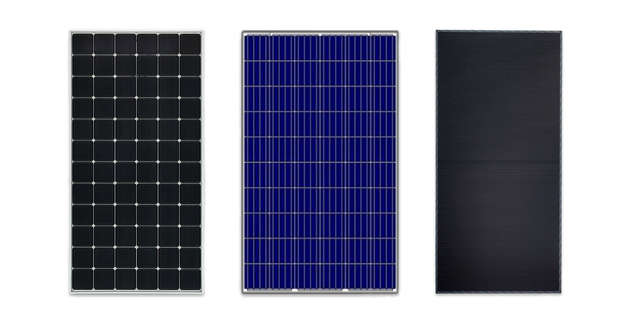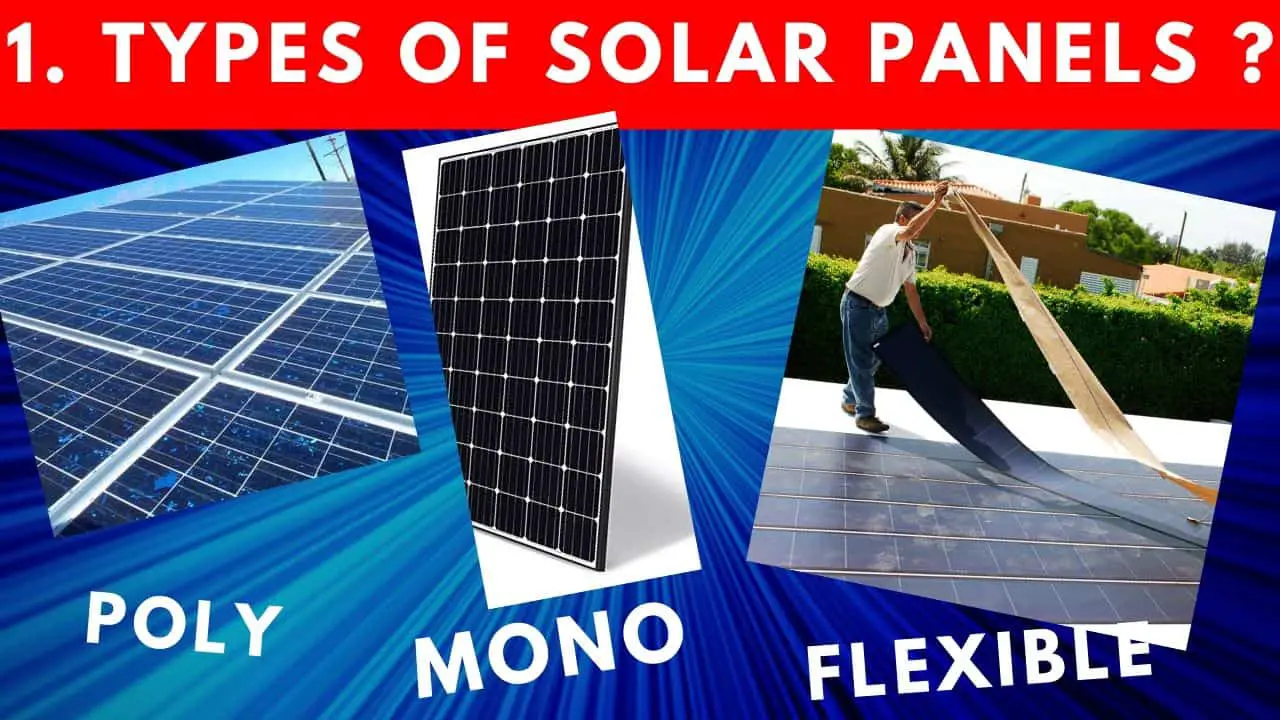The Best Guide To Solar Systems
Wiki Article
9 Easy Facts About Solar Systems Explained
Table of ContentsThe Only Guide for Solar SystemsSolar Systems Fundamentals ExplainedThe 30-Second Trick For Solar SystemsUnknown Facts About Solar Systems
There are three different kinds of photovoltaic panels: monocrystalline, polycrystalline, as well as slim movie. Monocrystalline photovoltaic panels are highly efficient and have a smooth style, however come at a higher price point than various other solar panels. Polycrystalline photovoltaic panels are more affordable than monocrystalline panels, however, they are less efficient and aren't as aesthetically pleasing.Nowadays, there are a number of varieties of monocrystalline solar panels on the market to pick from., are coming to be a significantly preferred monocrystalline choice.
Since monocrystalline solar cells are constructed from a solitary crystal of silicon, electrons have the ability to easily flow throughout the cell, raising general effectiveness. Not only do monocrystalline panels have the highest performance scores, they normally also have the highest power capability ratings, too. The majority of monocrystalline panels on the market today will certainly have a power outcome rating of a minimum of 320 watts, but can rise to around 375 watts or higher!.
Due to the fact that polycrystalline cells have several silicon cells, the electrons can stagnate as quickly and also because of this, decrease the effectiveness of the panel. The lower effectiveness of polycrystalline panels also indicates they tend to have a reduced power output than monocrystalline panels, normally varying between 240 watts and also 300 watts.
Solar Systems Can Be Fun For Anyone
In order to fulfill your power requires, you would certainly need to mount even more thin film panels over a large area to generate the very same quantity of power as crystalline silicon solar panels. This is why slim film solar panels don't really make feeling for household installations where room is restricted.The temperature coefficient tells you how a lot the power outcome will decrease by for every 1 * C over 25 * C the panel obtains. The common temperature level coefficient for mono as well as polycrystalline panels usually falls someplace in between -0.
As a matter of fact, with some slim film panels, it's hard to also see the private cells within the panel. They likewise tend to have much less wiring and also busbars, indicating there's less white space. However, due to the fact that they are so inefficient, you would certainly require to cover your whole roofing system in thin movie panels - which may or may not be your design.

Some makers have functioned around this with black packaging or forming the cells in a different way, however these aesthetic changes can impact both the price and also efficiency of the panels. In general, monocrystalline panels still look smooth, however they're find more a bit more obvious than slim film panels. solar systems. The process in which polycrystalline solar cells are made triggers the cells to have a blue, marbled look.
Fascination About Solar Systems
If you're on a tight spending plan, polycrystalline panels may make even more sense for you. We do not advise thin film photovoltaic panels for domestic installments - their performance as well as resilience do not make the low cost worth it, and it's unlikely you'll have her response virtually adequate area to mount the number of slim movie panels you would need to cover your house electrical power use.Since they are made from pure silicon, they can be conveniently identified by their dark black shade. Making use of pure silicon also makes monocrystalline panels one of the most space-efficient and longest-lasting amongst all 3 solar panel types. This comes at a cost a great deal of silicon is lost to generate one monocrystalline cell, in some cases reaching over 50%. solar systems.
/types-of-solar-panels-pros-and-cons-5181546_finalcopy-93f1db65349840bdba2822f75fa592f9.jpg)
Amorphous silicon panels (A-Si) derive their name from their shapeless nature. Unlike mono-and polycrystalline solar cells, the silicon is not structured on the molecular degree.
See This Report on Solar Systems
50 $0. 50 $0. 50 Note that these numbers do not consist of the expense of installation and labor.
This indicates that thin-film panels can be an excellent option for hotter atmospheres or places that experience even more sunlight throughout the year. The updated International Building ordinance of 2012 calls for photovoltaic panels to match the fire rating of the roofing where they are mounted. This is to make certain that the modules do not accelerate the spread of fires in case of a fire.
Report this wiki page